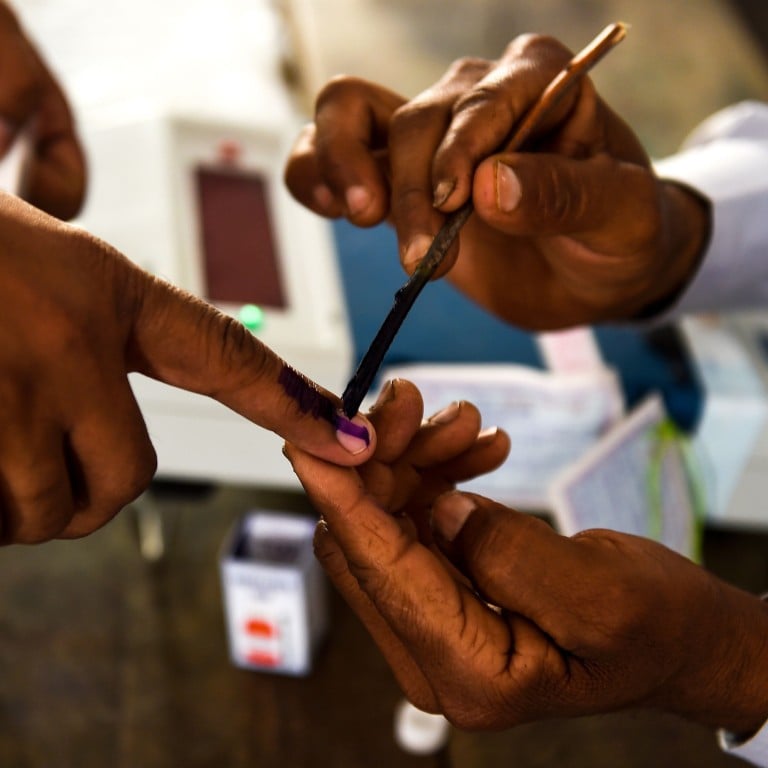
India elections: the importance of being Uttar Pradesh
- The country’s most populous state is often seen as a bellwether for where India is headed politically
- Last time, the BJP won more seats there than any other party – but a new ‘grand alliance’ hopes to scupper its plans
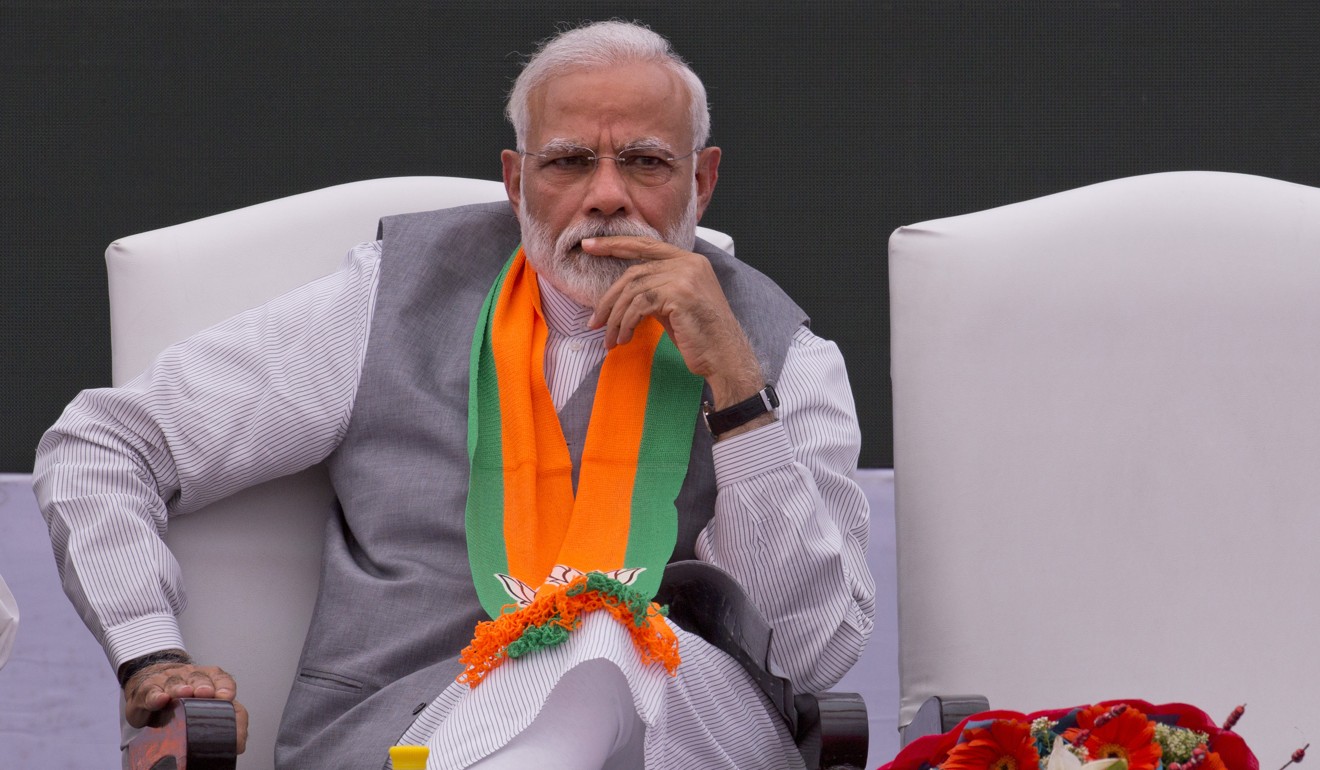
Its leaders are hoping to lure back these voters, whose support they were previously able to rely upon, to deny Modi a return to power, according to Sudhir Panwar of the Samajwadi party – one of the three that came together to form the anti-BJP alliance.
Indian elections: the idea of a secular, tolerant democracy is at stake
Based upon the results of the 2014 elections, “the BJP has a maximum of 42 per cent of the vote. This alliance has 51 per cent after deducting the Congress party’s 7 per cent,” he said.
In the absence of what was termed the “Modi wave” that the incumbent prime minister rode to power last time, caste is likely to be the decisive factor in this year’s election, according to social historian and cultural anthropologist Badri Narayan Tiwari, of the Govind Ballabh Pant Social Science Institute in Uttar Pradesh.
He said that “on the surface, there may be some national issues” – such as defence, in the wake of the recent tit-for-tat military exchange with Pakistan – but “underneath”, the concerns of lower castes and educationally or socially disadvantaged people “will be a strong factor”.
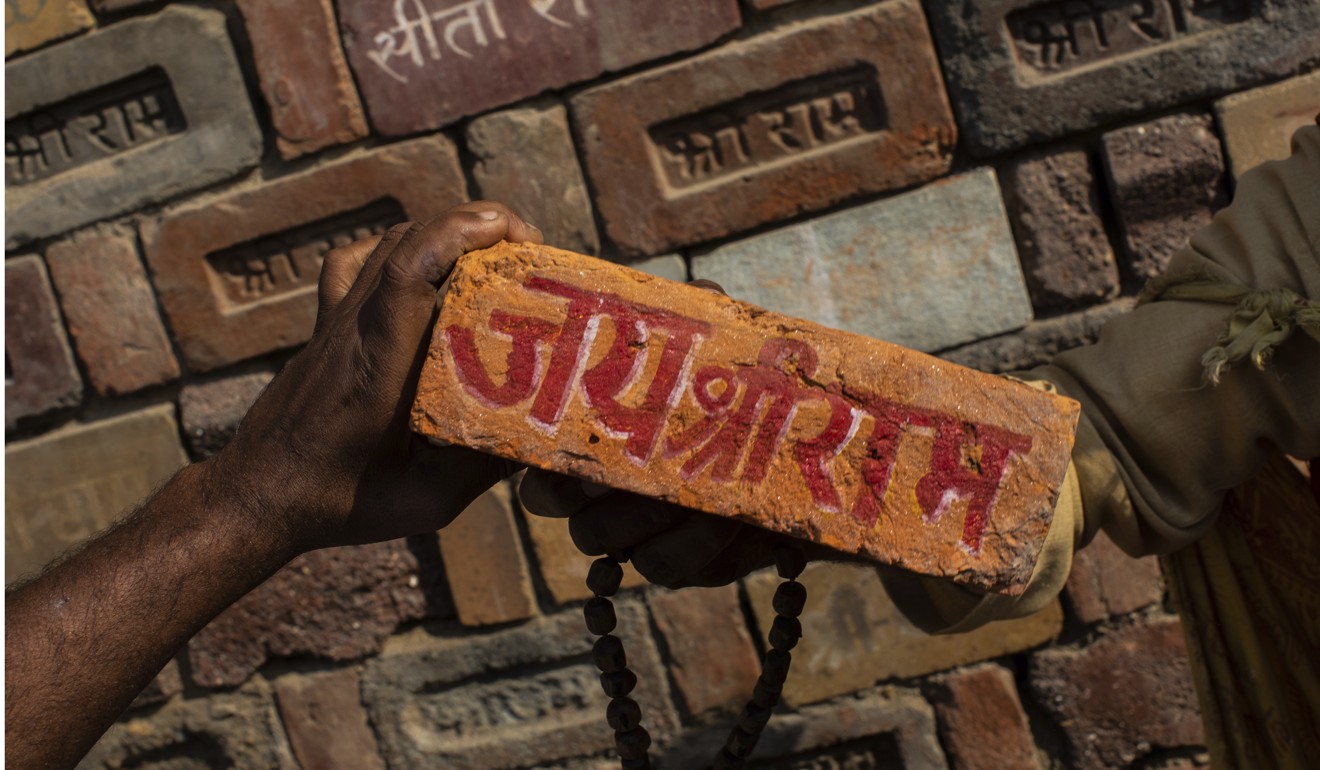
A national pre-election survey, conducted by the Centre for the Study of Developing Societies in New Delhi, found that the BJP and its regional ally Apna Dal could expect to win between 32 and 40 seats in Uttar Pradesh, with the grand alliance taking between 38 and 46 seats.
As a Hindu nationalist party, the BJP has historically benefited from issues that energise its base.
Until 1992, there was a mosque on the site known as Babri Masjid, which was destroyed that year by a Hindu mob, sparking deadly religious riots across the country.
Inside India’s RSS: the secretive group of hardcore Hindus dedicated to Modi’s re-election
The year before the mosque’s destruction, the BJP won 51 seats in Uttar Pradesh – up from eight seats at the previous national polls and zero in the ones before that.
The dispute, and the BJP’s repeated promises to build a temple dedicated to Lord Ram on the site, are still hot-button issues in India.
But they have been downplayed at this election to prevent “mudslinging” and controversy, according to Surendra Kumar Jain, joint general secretary of the organisation at the forefront of the campaign to construct the temple, the BJP-allied Vishva Hindu Parishad.
He is unhappy that the temple has not yet been built, but like many Hindu nationalists in the region he will vote for the BJP anyway because it “is the only [party] that continues to say openly that it will ensure the construction of the temple”. Other core supporters shared similar sentiments. Ayodhya native Vaibhav Gupta did not vote for the BJP in 2017’s legislative assembly elections, but he cannot countenance voting for any other party except Modi’s in this year’s national polls. “If we are angry with our parents, where will we run? We cannot abandon home,” he said.
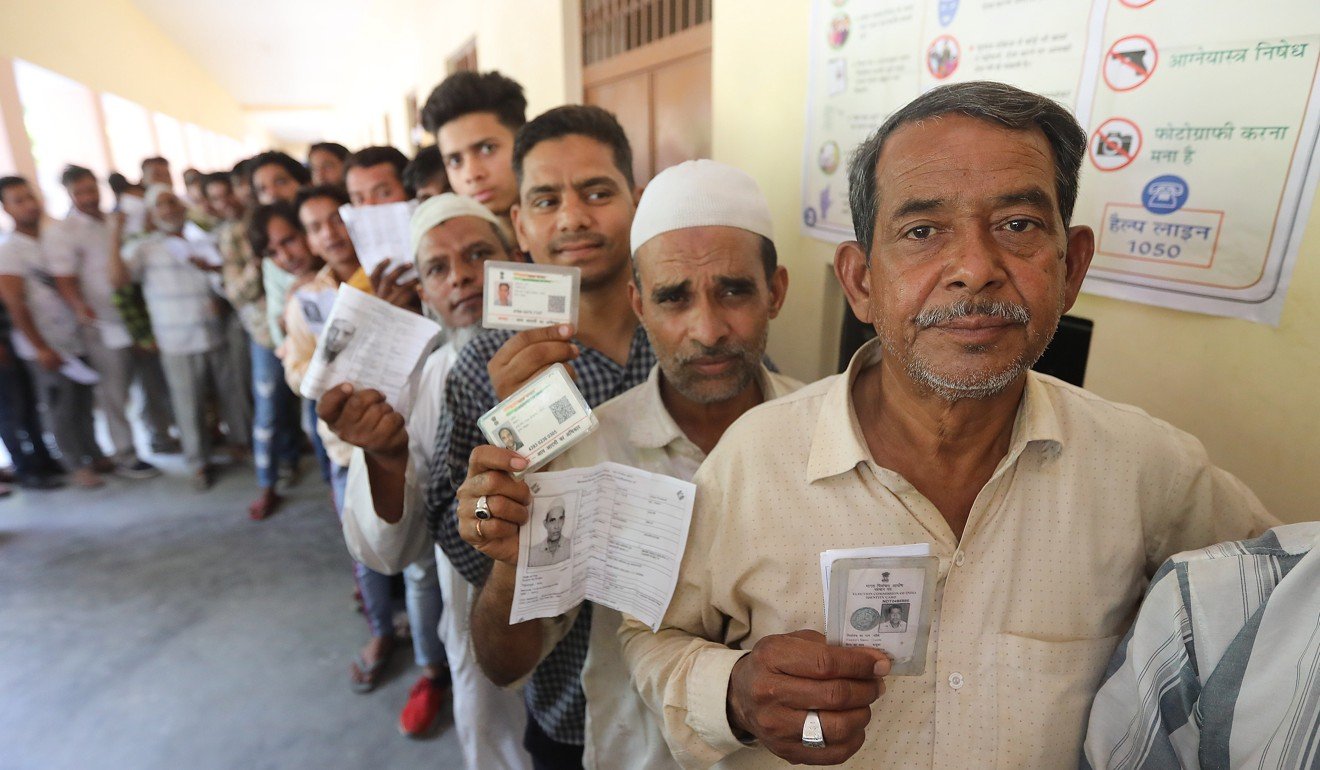
However, as members of India’s upper castes and trading communities, Jain and Gupta are part of the BJP’s electoral base – to be relied upon come rain or shine.
It is only by retaining the support of other segments of the electorate that Modi’s party can hope to win again. Which is why the Ayodhya dispute has been noticeable by its absence from the BJP’s election campaigning this time around, as it would “stop them from getting the support of many communities”, according to Tiwari, the social scientist.
Indian leaders promise free money in hunt for votes, but who will foot the bill?
But that has not stopped BJP members from attempting to polarise voters along communal lines.
On Thursday, the party’s MP for Muzaffarnagar since 2014, Sanjeev Balyan, made a swipe at Muslim women, saying they could engage in voter fraud if they wore a burka as it obscures their face, allowing them to vote more than once. His remarks earned him a rebuke from the state’s chief electoral officer.
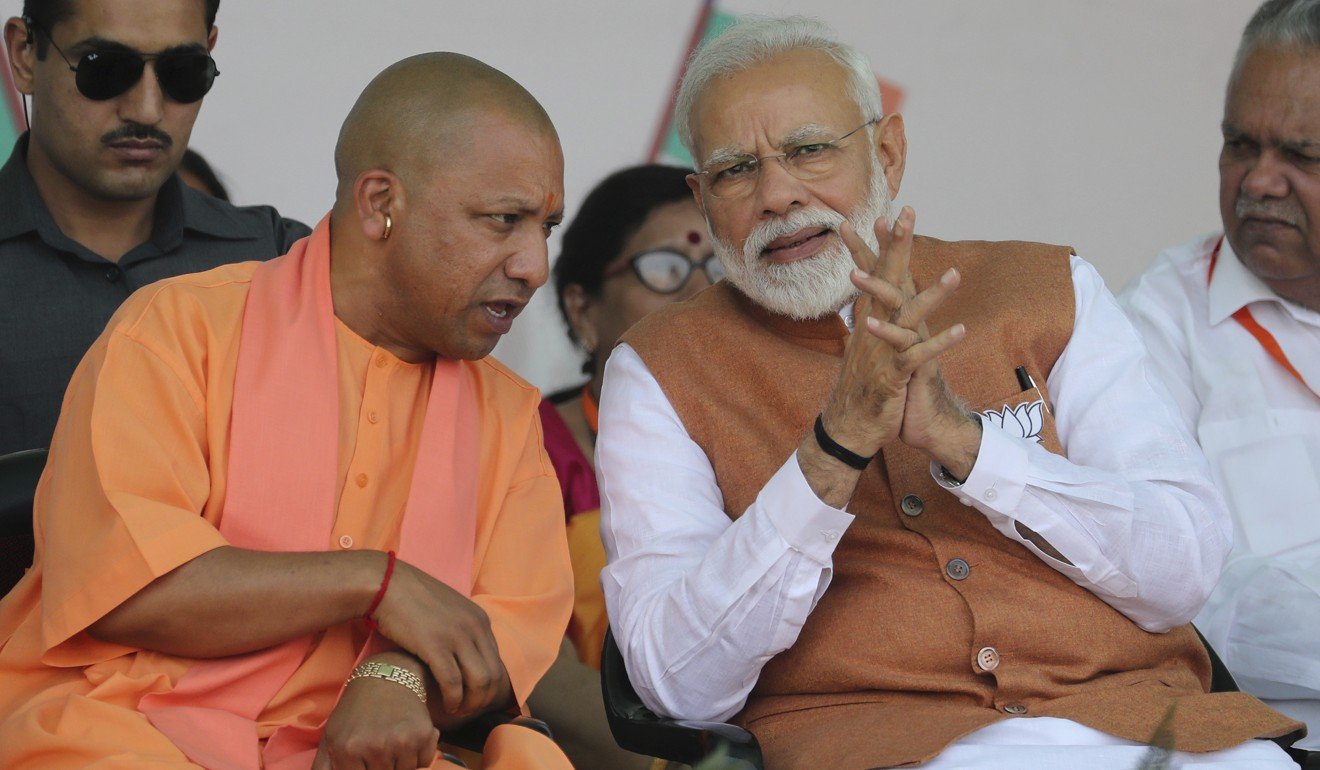
He alluded to Muslims as a “green virus” that were “plotting against the nation” and accused one of his predecessors as chief minister – Mayawati – of “playing the Muslim card”.
This was a reference to a rally held earlier this month where Mayawati – president of the Bahujan Samaj Party that constitutes one-third of the anti-BJP “grand alliance” – appealed to Muslims not to split the vote by supporting Congress.
Such a request not only risks playing into the BJP’s hands, but also exposes one of the alliance’s biggest failings: the absence of Congress from its ranks.
Voters should have the Modi blues ... so why is Gandhi’s Congress set to fail?
Without this major party that has supplied the bulk of India’s past prime ministers, votes that the alliance is counting on – such as those of Muslims and Dalits – cannot be assured.
Nirmal Khatri, who is running as Congress’ candidate for Faizabad in Uttar Pradesh, predicted as much when he said that the Dalits in his constituency “will not obey Mayawati” because they are of a different sub-caste to her, adding that they have had “a bad experience” with the candidate that the grand alliance is fielding there.
The BJP will be hoping that at least some of the Dalits, Yadavs and Jats that voted for it in 2014 will do so again.
Post-election analysis by the Centre for the Study of Developing Societies after the last national polls found that, nationwide, one in four Dalits voted for the BJP. While in Uttar Pradesh, 27 per cent of Yadavs and 77 per cent of Jats gave their support to Modi’s party.

Whether it can count on their votes again, only time will tell, but the current ruling party seems confident that Modi’s popularity will win the day.
G V L Narasimha Rao, BJP spokesman and a member of the Indian parliament’s upper house, said he was confident that the party would improve its vote tally in Uttar Pradesh, where 80 Lok Sabha seats are up for grabs, because the electorate only knew Modi as chief minister of Gujarat in 2014, whereas “today they have seen him as prime minister for five years”.
“In states like Orissa, West Bengal and those to the north east of the country, we did not achieve much success in 2014 because the BJP was not a very strong party in these parts,” he said.
“In this election, having seen him as prime minister, there is a major boost to his popularity and as a result, we expect to win more seats.” ■

